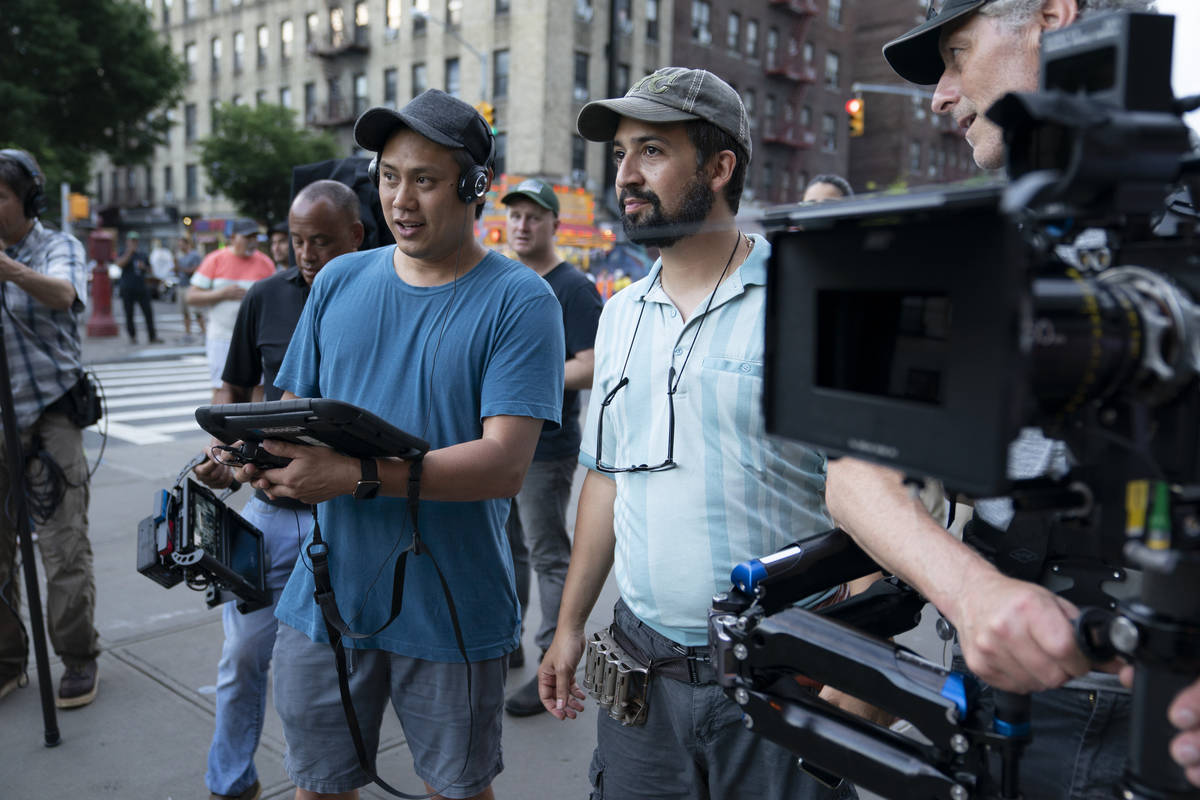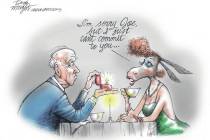RUBEN NAVARRETTE JR.: American greatness: The secret is in the mix
The genius of America revealed itself to me several years ago in — of all places — a bagel shop. One day, in the overwhelmingly white suburb where I live, I walked in to find the Chinese American owner conversing in Spanish with a pair of Mexican immigrants who bought a bag of the house specialty: a plain bagel covered in cheddar cheese and jalapeños.
Welcome to the revolution! Would you like it with a schmear — or salsa? America’s secret sauce is a tasty ethnic fusion.
Traditionalists still insist that the United States is a melting pot that incinerates all the spice that immigrants bring with them from their home countries so that the only thing left behind is bland and generic.
Rubbish. The United States is more like a paint factory. If you mix red and yellow, you get orange. Red and blue, blended together, yields purple.
Sometimes, this revelation shows up at the movies. When I saw “Crazy Rich Asians,” the hit 2018 film directed by Jon M. Chu, it wasn’t difficult to see glimpses of the Mexican American experience I grew up around. The story hit on countless universal themes, like the daughter of immigrants who struggles to preserve her culture even as she continues to thrive in the mainstream.
It’s because I know these stories so well that I’m embarrassed to say I was blindsided by Chu’s new feature film, “In the Heights.” The movie — based on Lin-Manuel Miranda’s hit Broadway musical — is a triumph and a source of cultural pride for many Latinos.
For this Mexican American, it was also a tutorial. It taught me a lesson. You see, I loved the Broadway show about the Upper Manhattan neighborhood of Washington Heights and the working-class folks who live there.
Even so — given that Miranda is of Puerto Rican descent and was born in Washington Heights, and I’m a Mexican American who was born in Central California — I had my doubts that the film would speak to me.
All of which brings us to three words that could help make the world a better place if more columnists learned to say them more often: I was wrong.
Time and again in the film, I recognized myself — and my friends and family — in the people who try to scratch out an existence in The Heights. The characters are Latino Americans who can trace their ancestry to the Dominican Republic, Puerto Rico, Cuba, Mexico and elsewhere. But they blend together seamlessly into one community.
One element of the film that struck a loud chord with me was how young people couldn’t wait to leave the neighborhood — or in my case, the small farming town — but later couldn’t wait to return. Another familiar storyline was the brainy daughter who goes to an elite university clear across the country then struggles to fit in when she gets there.
I’ll see your bodega (corner store), and I’ll raise you a tiendita (corner store).
The estimated 61 million Latinos in the United States break down into more than a dozen separate tribes based on country of origin. According to the Pew Hispanic Center, about 60 percent of the Latino population is Mexican or Mexican American. The other 40 percent is made up of people whose lineage can be traced to Puerto Rico, Cuba, El Salvador, Guatemala, Colombia and other countries.
Just as the neighborhood of Washington Heights is a beautiful mosaic of different subsets of Latino, so too is this film an all-in-one love letter to the entire Latino community. We could use some love at the moment, seeing how we’re so often mistreated, marginalized and misunderstood.
Another group that feels that way, even within the Latino community, is Afro-Latinos. The filmmakers behind “In the Heights” have been accused of not adequately depicting that portion of the community, and focusing on light-skinned Latinos. Miranda has apologized.
No apology necessary. It’s an absurd accusation. Of the four actors featured on the movie poster, one is African American, and one is Afro-Latina. And does anyone think that Miranda — who, in “Hamilton,” told the story of the founding of America through rap lyrics sung by Latino and Black actors — is actively searching for ways to exclude people?
In the end, I did see myself in the movie. And not because I’m Mexican American or Latino. But because I’m an American. I was there all along. I just had to look harder.
Ruben Navarrette’s email address is ruben@rubennavarrette.com. His podcast, “Ruben in the Center,” is available through every podcast app.




























